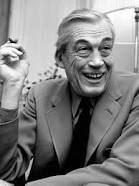
Let There Be Light Page #2
- NOT RATED
- Year:
- 1946
- 58 min
- 551 Views
Yes, sir.
I'm sorry.
Well, now, you say you had
received a letter from your...
Not a letter, sir.
A photograph.
A photograph, yes.
Well, what about that, now?
Well, sir, to be
perfectly honest with you,
I'm very much in love with my
sweetheart.
She has been the one person that
gave me a sense of importance
in that through her cooperation
with me,
we were able to surmount so many
obstacles.
What happened?
Well, when I was in
combat...
Can you speak louder?
Yes, sir.
During the time, I got worried
that my brother...
he was killed in Guadalcanal.
What was he, a Marine?
Yes.
Now, I notice in this
history here
that you saw a vision of your
brother.
What... tell me something about
that.
What happened?
Oh, I guess it was a
dream.
Well, describe the dream.
What did you see in the dream?
I dreamt that I was
home, my brother was home,
and my other brother was home.
We all were home.
All of you were home.
Sitting around the table.
Everybody was happy, and we were
laughing, you know, talking.
Just admiring each
other.
And then it ended there.
And you could see these
images clearly.
It was like in a dream,
see?
Yeah.
What about this Mindanao thing
you were telling me about?
Well, in Mindanao,
after I got the news,
I admit I was scared.
You were scared.
I don't know.
Sometimes I'd hope something
would happen,
then again I'd say, "Well,
something did happen."
What do you mean by
"something happen"?
You mean you were hoping that
you'd be wounded and sent back?
Is that what you mean?
No.
What do you mean by that?
I meant that I hoped
that just...
you know, I was so disgusted and
tired of everything,
I just didn't feel like living.
And then I changed my mind, and
I'd think back to my folks,
and it would be a double blow if
something happened to me.
And I'd be standing guard,
sitting a machine gun nest,
watching.
And then I'd hear a little
noise, and I'd let go, shoot.
Wasn't nothing, probably.
It was an animal or something.
Any noise made you upset,
and you'd just shoot.
At that time, yes.
Do you feel worried about
anything now?
I don't know.
Are you mixed up?
Kind of.
What's that pin on your
shirt there?
My heart.
Aren't you proud of them?
Yes, sir.
campaign ribbons.
Yes, sir.
Well, why are you covering
them up?
I mean, there must be some
reason for you doing that.
Well, what happened over there?
We got in a scrape,
and...
I was in the house there, just
got off of guard duty.
And it was Friday the 13th, and
I'm sweating it out all day.
Patrol came up from town,
Translation
Translate and read this script in other languages:
Select another language:
- - Select -
- 简体中文 (Chinese - Simplified)
- 繁體中文 (Chinese - Traditional)
- Español (Spanish)
- Esperanto (Esperanto)
- 日本語 (Japanese)
- Português (Portuguese)
- Deutsch (German)
- العربية (Arabic)
- Français (French)
- Русский (Russian)
- ಕನ್ನಡ (Kannada)
- 한국어 (Korean)
- עברית (Hebrew)
- Gaeilge (Irish)
- Українська (Ukrainian)
- اردو (Urdu)
- Magyar (Hungarian)
- मानक हिन्दी (Hindi)
- Indonesia (Indonesian)
- Italiano (Italian)
- தமிழ் (Tamil)
- Türkçe (Turkish)
- తెలుగు (Telugu)
- ภาษาไทย (Thai)
- Tiếng Việt (Vietnamese)
- Čeština (Czech)
- Polski (Polish)
- Bahasa Indonesia (Indonesian)
- Românește (Romanian)
- Nederlands (Dutch)
- Ελληνικά (Greek)
- Latinum (Latin)
- Svenska (Swedish)
- Dansk (Danish)
- Suomi (Finnish)
- فارسی (Persian)
- ייִדיש (Yiddish)
- հայերեն (Armenian)
- Norsk (Norwegian)
- English (English)
Citation
Use the citation below to add this screenplay to your bibliography:
Style:MLAChicagoAPA
"Let There Be Light" Scripts.com. STANDS4 LLC, 2024. Web. 24 Apr. 2024. <https://www.scripts.com/script/let_there_be_light_12480>.



Discuss this script with the community:
Report Comment
We're doing our best to make sure our content is useful, accurate and safe.
If by any chance you spot an inappropriate comment while navigating through our website please use this form to let us know, and we'll take care of it shortly.
Attachment
You need to be logged in to favorite.
Log In